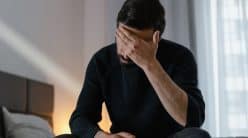Knowing what constitutes a plumbing emergency can save you from costly repairs and prevent further property damage. If a plumbing problem intensifies or poses significant risks to your safety, it should be considered an emergency.
But how do you know when to call for help? This article will cover the signs and symptoms that should prompt you to hire an emergency plumber.
Turn Off the Water
The first step in any plumbing emergency is to shut off the water. This will help to mitigate damage and can buy you time until the plumber arrives. Many homeowners aren’t sure whether or not a problem is an emergency, so the first question to ask yourself is: Will the issue cause significant water damage if left unattended? If the answer is yes, then it’s definitely a plumbing emergency.
Depending on the situation, turning off the water may be as simple as opening the valve located behind or underneath a fixture. For example, toilets usually have their own water shut off valves that are easy to locate and turn. Alternatively, you might have to turn off the main water valve in your home. This can be done by turning the knob in a clockwise direction. It is also a good idea to close the drains in the affected area to reduce the risk of a flood if you are unable to turn off the water.
If you have no idea how to shut off the water, or you are unsure of whether the issue is an emergency, then call your local plumber and describe the problem. They can advise you on what the best next steps are.
For the best results, it is important to turn off the water as soon as you notice a problem. This can help prevent further damage and save you money on your water bills.
The majority of plumbers work during business hours, so it is essential to know if your plumbing problem can wait until then. A burst pipe, for example, is an emergency and will need to be fixed as quickly as possible. However, if the problem is something like a slow draining sink or a clogged toilet that can be easily solved with a plunger, then it’s unlikely to cause any immediate damage and might be able to wait until the morning.
Find the Source of the Leak
Depending on where the leak is coming from, there may be different steps you should take to mitigate it. In any case, you should start by locating the shut-off valve and turning it off. This will stop water from flowing and prevent further damage from occurring.
Once the water is off, you should then try to find the source of the problem. Leaks can happen from all sorts of places, so it’s important to make sure you check all areas of your home. If you have a toilet that’s constantly leaking, try stuffing towels underneath it or placing buckets on the floor to catch the water. You can also open your spigots to drain some of the excess water out of your system and into a nearby gutter or puddle.
If the leak is caused by a burst pipe, you’ll want to shut off your main water line right away. This will prevent gallons of water from flooding your home and could save you thousands in water damage costs. It’s especially important to shut off your water in the winter because pipes can freeze and burst.
It’s also crucial to check for signs of a leak around your electrical outlets, as water can create a fire hazard and cause mold or mildew in your walls and ceilings. If you see these symptoms, call an emergency plumber immediately.
Oftentimes, plumbing problems aren’t as serious as they seem. In fact, many of the most common issues are preventable. For example, don’t pour cooking oil down the sink, and never toss garbage in your toilet that you shouldn’t. These items can clog your drains and lead to major issues down the road. Having a plumber’s number saved in your phone before a problem occurs will ensure that you’re prepared for any plumbing emergencies that come up. You can even shop around for a plumber’s availability and rates before a disaster strikes to get the best deal. You can also save some money on plumbing services by calling three companies for a quote over the phone, so you’re not paying full price when they arrive to fix your plumbing emergency.
Call a Plumber

If you’re dealing with leaky pipes or clogged drains, don’t hesitate to call a reliable plumber Naperville service to get the job done efficiently. Water damage can be costly to repair and could lead to serious health problems if left untreated. It’s also important to turn off the water supply to prevent further damage and flooding.
You can find your home’s main shut-off valve in a basement, in a crawlspace, or near the water meter or where the water line enters the house. It’s a good idea to know where this is ahead of time so you can quickly shut off the water in an emergency. You may also want to consider getting a water alarm, which will warn you when your water pressure is low or your pipes are under pressure.
Some water leaks are easy to spot, such as a rush of water coming from a faucet or soggy piece of drywall. Others, like a slow drip from a fixture or a clogged drain, aren’t as obvious but still require attention. Clogged toilets and drains are particularly frustrating, especially when they’re caused by a serious issue such as a blocked sewer line.
If you have a clogged drain, try opening all of your drains and flushing the toilet. This should help clear out the clog and prevent it from returning. If the problem persists, call a plumber to assess the situation and determine the cause of your clog.
A burst pipe is one of the most dangerous plumbing issues because it can release gallons of water and compromise your home’s structural integrity. A burst pipe should always be treated as an emergency and you should shut off your water before calling a plumber.
If you can’t turn off the water, try to limit the damage by placing buckets or mops around the affected area. It’s also a good idea to turn off any electrical appliances that are near standing water to avoid electrical shock and keep them safe from further damage. Finally, don’t use any electrical devices in the area where the water is pooling and never touch any wires that are exposed.
Clean Up
While you wait for a plumber to arrive, it’s important to make sure that any damage caused by the problem is documented. Do your best to survey the scene and take photos of any affected areas, as well as any belongings. This will come in handy when you file an insurance claim. It’s also a good idea to make a list of any items that are beyond salvageable, and save any receipts you have from the plumbing work.
Shutting off the water is the most important thing you can do in a plumbing emergency. This will stop any new water from entering the system and help minimize the amount of damage caused by existing water. It’s worth knowing beforehand where the shut-off valve is located in your home so that you can find it quickly in an emergency. Toilets, sinks, and washing machines all have their own shut-off valves, typically found behind, next to, or underneath them.
Some issues definitely require a plumber right away, but it can be hard to determine whether or not you have a true emergency on your hands. The best way to tell is by looking at the overall scope of the problem and how bad it is. If you have significant water damage to your walls, flooring, or furniture, it’s definitely time to call a plumber.
Sewage backup is another issue that requires immediate attention from a plumber. Not only does it create a health hazard for your family, but it can also cause serious structural damage to your home.
Even if the problem isn’t dangerous, it’s still an emergency if you are completely without clean water. This makes it difficult to wash dishes, flush the toilets, shower, and tend to your plants and pets.
While it may be tempting to call the first plumber that comes to mind, it’s often best to shop around for one with a reputation for quick response times and reliable service. Check online reviews and ask friends, neighbors, or coworkers for recommendations. You may also want to consider hiring a plumber that offers 24/7 emergency services.






